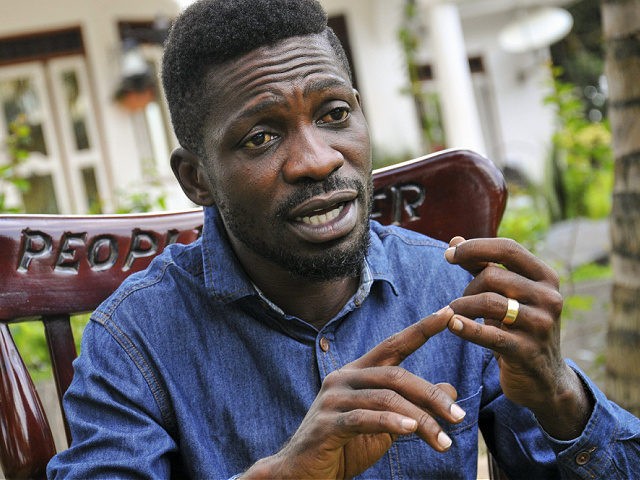Opposition leader and presidential candidate Bobi Wine of Uganda accused soldiers of having “raided” his home and arrested his security guards on Monday morning during a live radio interview for a Kenyan radio station, Deutsche Welle (DW) reported on Tuesday.
“The army has this morning raided my home, arrested all my security guards and anyone they could see around my premises,” Wine wrote on Twitter on January 11.
“No reason for the arrest was given,” the pop-star-turned-legislator added.
The alleged raid on Wine’s home occurred as the politician participated in a live radio interview with Kenya’s Hot 96 FM station according to DW, a German state-owned broadcaster.
Wine is running as a presidential candidate in Uganda’s upcoming general election on January 14. He seeks to oust current Ugandan President Yoweri Museveni, who has been in power for 35 years.
While the Ugandan army has not responded to Wine’s allegations that its soldiers raided his residence, the Uganda National Police said on January 12, “they have credible information that … Bobi Wine plans to stage his own abduction after casting his vote on Thursday [January 14],” Uganda’s Daily Monitor reported.
Uganda National Police spokesman Fred Enanga said Wine “will possibly hide at an embassy” after voting in the general election, though he did not specify which embassy.
“He will thereafter allege through his NUP [National Unity Platform] networks and bloggers, that he has been kidnapped by state operatives,” Enanga told reporters at the police force’s headquarters in Kampala, Uganda’s national capital.
Wine leads the NUP, a social-liberal political party that opposes President Museveni’s National Resistance Movement (NRM) Party. The NRM has ruled Uganda since 1986, when its rebel wing, the National Resistance Army, helped Museveni seize control of the country through guerilla warfare. Museveni was a vocal Marxist when he took power and remains a loyal ally of the world’s largest Communist Party, the Communist Party of China.
Uganda has experienced “relative political stability and economic growth” under Museveni’s rule, the U.S. State Department noted in a summary of its bilateral relations with Uganda in December 2019.
“Uganda has been a reliable partner for the United States in promoting stability in the Horn and East/Central Africa and in combatting terror, particularly through its contribution to the African Union Mission in Somalia,” the U.S. foreign policy wing added.
Despite its position as a Western ally, Uganda faces “numerous challenges … that could affect its future stability, including explosive population growth, power and infrastructure constraints, corruption, underdeveloped democratic institutions, and human rights deficits,” according to the State Department’s summary.
Museveni dismissed alleged “foreign interference” in Uganda’s upcoming general election in a televised speech on January 12. The NRM has previously accused alleged foreign actors of supporting the Wine-led opposition movement to overthrow Museveni.
“Museveni dismissed interference by foreign partners saying they didn’t understand that Uganda’s strength came from the ruling National Resistance Movement (NRM), the army and the economy,” Reuters reported of the president’s speech.
“We therefore don’t need lectures about anything from anybody. Because there’s nothing we don’t know,” Museveni added.

COMMENTS
Please let us know if you're having issues with commenting.